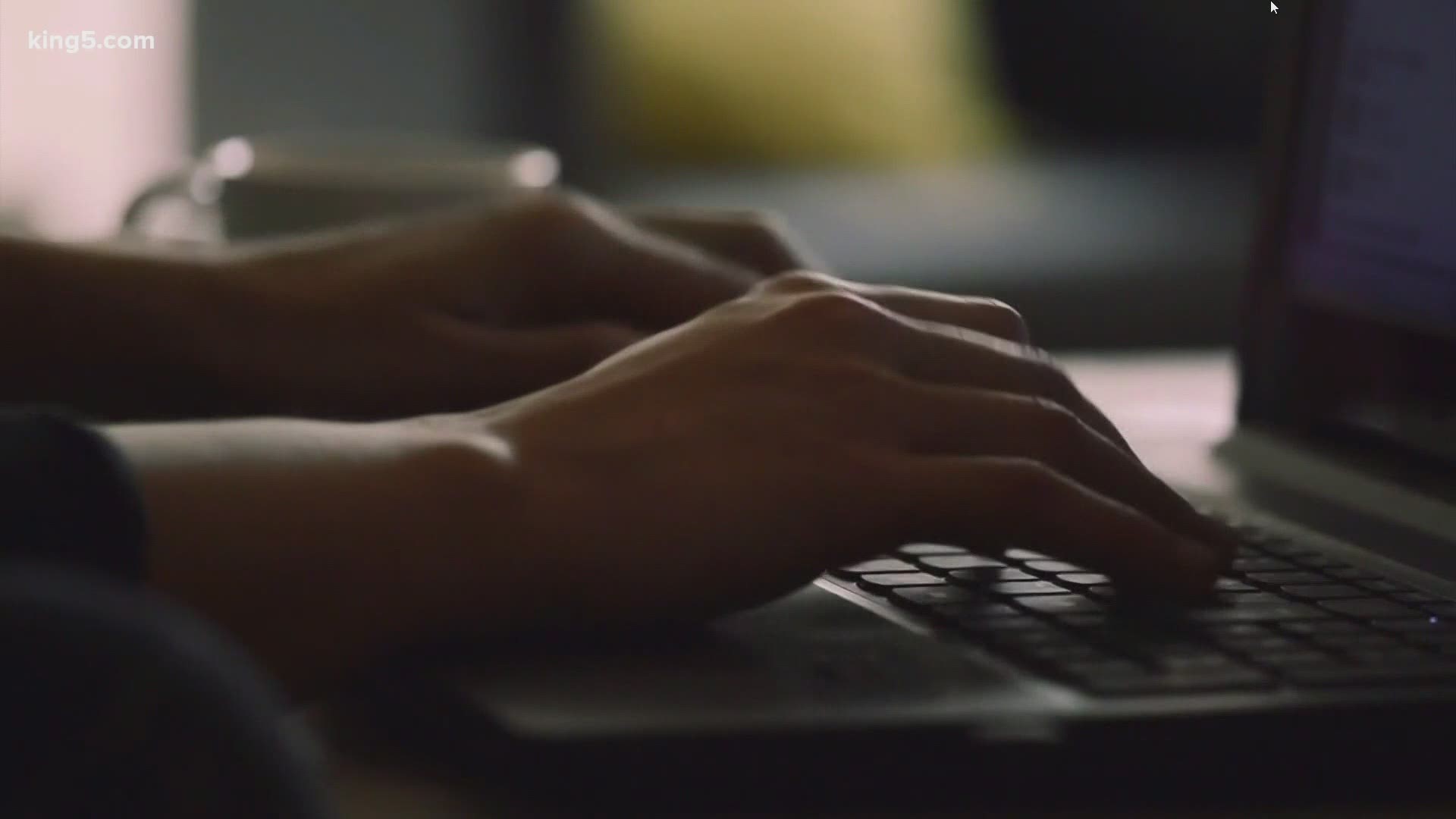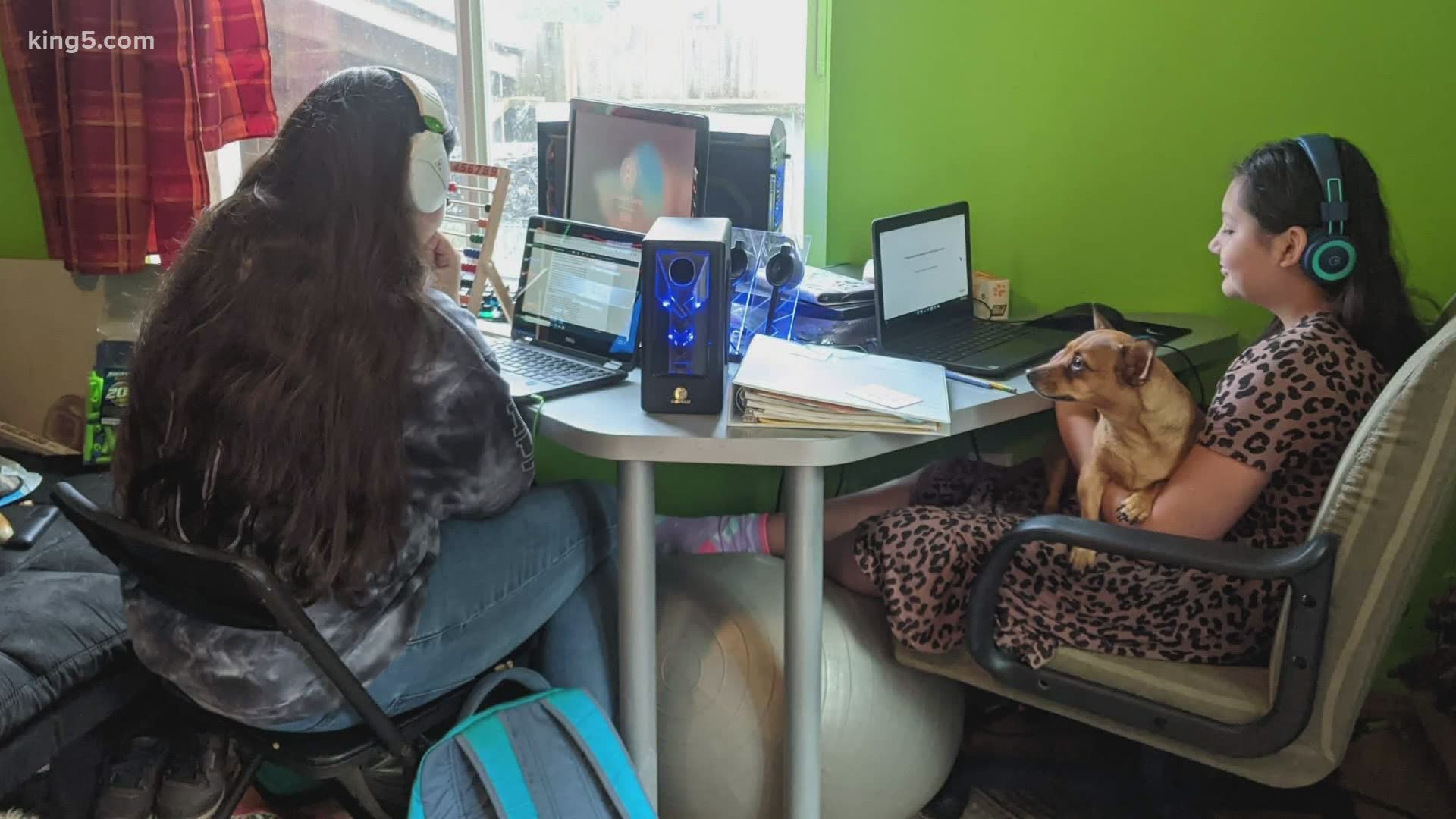MASON COUNTY, Wash. — On a chilly Wednesday afternoon, dozens of people stood outside in the cold, waiting in a slow moving line to receive their first dose of the COVID-19 vaccine.
To some, in the school parking lot, it was a visual reminder of the virtual problems which exist in rural Mason County.
"They have been trying to figure out when to get their shots," said Dana Rosenbach, about a couple of her neighbors standing in the line who were frustrated by the lack of internet connectivity to book an appointment or even use the PhaseFinder tool put out by the state Department of Health.
Rosenbach, who is North Mason's School District Superintendent, said the pandemic has only amplified the need for rural broadband in counties like hers.
"It's spotty. We have about 500 students and their families that don't have access at home and don't have the ability to have access," she said Wednesday, "When you have limited fiber, you have more people using it in a small community, your speed and everything goes down."
That's been especially problematic in a world where remote learning is now common. She pointed to one of her administrators who has been driving their kids 45 minutes one way each day, just to get to a WiFi hot spot.
"The pandemic has made it unmistakably clear, that is long past time to lift those restrictions and allow government to offer broadband directly to the public," said State Rep. Drew Hansen, D-Bainbridge Island.
He's sponsored a bill, along with state Rep. Alex Ybarra, R-Quincy, and a dozen other lawmakers, to clear a hurdle of municipal or public utility broadband.
Hansen said HB 1336 would eliminate the laws which have restricted the creation of any municipal broadband entity.
It had a hearing on Wednesday, which included testimony from tribes, PUDs and at least one PTA group, seeking the change.
Rosenbach said the bill is a good start, although it will take time to build up any infrastructure or services if the legislation passes. In fact, she said, the lack of connectivity was a reason why the district moved to resume in-person classes for many grades on Thursday, and earlier than other schools.
Hansen said even if the bill passes, things won't change overnight.
"You know, like, it's probably not gonna be like flipping switch. But the best time to plant a tree is 30 years ago, the second-best time to plant trees -- today. The best time to remove those restrictions would have been a couple of decades ago. Well the second-best time is now. So that people, we can get the service to people, rather than later."


